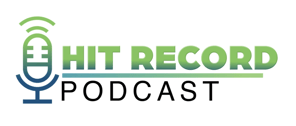Episode 5 - What Apple's iOS Update Means for Financial Institutions


Don't Miss An Episode, Subscribe Now

Podcast Episode 5:The FI GROW team discusses the impact of Apple's recent iOS 15 update and how it has impacted advertising on online platforms.
Transcription:
Have you ever been talking about something that's really useful and thought, "That's a great idea, let's hit record so we can share this with everyone?” If you're looking for best practices for your bank or credit union, join us while we talk all things sales, marketing, and strategy for financial institutions. Let's make it happen with FI GROW Solutions.
Meredith Olmstead:
Hi everybody. It's Meredith Olmstead again from FI GROW Solutions. Here we work with financial institutions on digital marketing and sales consulting. And I am here with my digital ads manager, Ida Burr, because we were just having a really great conversation we thought we would hit record on about the recent Apple iOS update for privacy and how it has impacted social media ads. So Ida, tell us really quickly, just in summary, from what we were talking about, what is the Apple iOS update when it comes to social media and Facebook, and how were we worried that it was maybe going to impact advertising on those platforms?
Ida Burr:
Yeah, so the iOS update pretty much now allows people, when they open their app for the first time after having their software update, it allows people to opt out of tracking across all the different apps on their phone. So if, say, for example, they visited your website and you would retarget them on Facebook with ads, they can tell the Facebook app not to allow that to happen any more.
Meredith Olmstead:
Got you. Got you. Okay. So that sounds like it could be a problem when comes to targeting and making sure getting in front of the right people at the right time with Facebook ads or with Instagram ads. So has that been the case? Has it really been a problem with making those audiences smaller or not able to be targeted?
Ida Burr:
Yeah, so it hasn't been as drastic of a change yet. I have noticed month over month, just these audiences are shrinking a little bit. The overall reach of individuals is shrinking, but it really comes down to just having a good variety of ad sets. So even if you're missing out in the custom audiences you may have running on reaching these people, you know that they're still in your broader audiences and different ads sets there. But now we're missing out on the data of, "We know we're retargeting this person," versus now it's just in a broader audience.
Meredith Olmstead:
Got you. Okay. So really the impact is around reporting your results rather than just not being able to reach people all together.
Ida Burr:
Yes.
Meredith Olmstead:
Got you. And what about costs? Has anything happened to costs when it comes to being able to track or to be able to prove results from social media ads?
Ida Burr:
Yeah. So most of the campaigns that we run are Facebook-based. So we run some fan-growth ads. We run a few engagement ads. The campaigns that have really been affected are the website-click campaigns. In those campaigns, we optimize for landing-page views versus link clicks. So what that means is Facebook records when somebody lands on the page and the page fully loads. We just see that as a higher-quality result to track and to optimize for.
Ida Burr:
I have noticed that the costs are going up a little bit there, but it hasn't been too drastic yet. I actually had a call with my Facebook rep last week, and she and I looked at that together with a couple of the clients. And what she suggested that we do is when we look in Ads Manager, we look at the landing-page views, and then we look at the website clicks right next to each other. You can customize the columns to see both of those results for each campaign. And she suggested if you notice more than a 50% difference in the two results, then it's probably time to switch to the website-click optimization again instead of the landing-page view.
Meredith Olmstead:
Okay. Okay, good to know. Is there anything else that has been impacted when it came to... Because I know that people were really worried it was going to be a huge disaster, but it hasn't been as big of a disaster as we were all worried about. But is there anything else that people should keep in mind when it comes to changes to advertising on social media?
Ida Burr:
Yeah. So I think financial institutions dodged the bullet with this one, because one of the biggest changes that did impact a lot of other advertisers is the events in conversion tracking. Because of the nature of financial institutions, Facebook has very strict events-capture, and they limit how you can track conversions on the website already. So we don't have a ton of conversion and events set up for our clients, just because the only way we're allowed to do it is URL-based at this point, and a conversion is an application and applications are on a third-party website. So we aren't really able to track that.
Ida Burr:
But if you do have any events or conversions set up, there are a few things you should, or actually you need to do, not you should do. You have to have your domain verified. You can do that in your Business Manager. If you look at the side menu at the domain, you can go in there. It's pretty easy to do, but it does need to be done. And then another really important thing to keep in mind is you're limited to eight different conversions now. So you really have to go through your list of conversions, if you have more, and prioritize which eight you would like to continue to track for.
Meredith Olmstead:
Got you. Okay. But in general it wasn't as big of a disaster as people were worried it would be?
Ida Burr:
Yes, thankfully.
Meredith Olmstead:
All right. Well, thanks, Ida. We've got a lot of great information when it comes to social media ads on our website at figrow.com. We also have figrowthacademy.com, which has all of our courses, and you can actually take a course with Ida and I on social media advertising if you're interested in learning more. So thanks so much everybody, and let's make it happen.








Blog comments